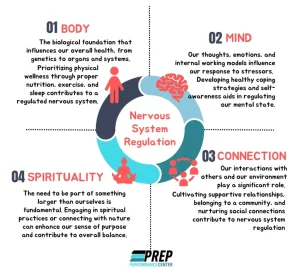
A healthful diet can offer a host of benefits for your mental wellbeing. Depression, anxiety and stress can be reduced by eating a variety of whole foods, such as fruits, vegetables, lean proteins and healthy fats.
Nutrient deficiencies are also linked to certain mental health issues, and research suggests that nutrient supplements may help improve symptoms.
Omega-3 Fatty Acids
Observational studies have found that mental illnesses, especially mood disorders, are associated with reduced dietary intake and cellular abundance of omega-3 polyunsaturated fatty acids (PUFA). Early clinical trials using gamma linoleic acid (LA) and docosahexaenoic acid (DHA) supplementation in patients with schizophrenia showed some promising results.
It has been suggested that omega-3 PUFAs act as antidepressants and mood stabilisers by decreasing pro-inflammatory cytokines and stimulating the growth of serotonergic neurons in the brain. Studies in bipolar disorder have also shown some positive results, but further research is needed to establish a stronger link.
Vitamin D
Vitamin D is crucial for your mental health, and research shows that a lack of it can exacerbate symptoms of depression. In fact, a large study found that depression severity was inversely related to Vitamin D levels.
Studies have linked low Vitamin D with postpartum depression (depression that occurs in the weeks and months after childbirth), as well as with autoimmune diseases like gout, chronic spinal cord injury, and multiple sclerosis. But a large randomized clinical trial in 2020 found that Vitamin D supplementation did not reduce the risk of depression.
Vitamin B6
Vitamin B6, also known as Pyridoxine, is involved in the metabolic process of making neurotransmitters that modulate mood and cognition. It is found in foods such as poultry, fish, nuts, beans and whole grains.
A study published by the University of Reading found that people who took high doses of Vitamin B6 supplements for a month experienced reduced anxiety and trends towards depression compared to those taking placebo pills. Researchers believe that this is due to Vitamin B6 supplementation enhancing GABA production in the brain, which can reduce feelings of stress and anxiety.
Vitamin B12
Vitamin B12 is known to play an important role in maintaining a healthy mental state. A deficiency in this micronutrient is associated with a variety of psychiatric symptoms, including mood fluctuations, memory loss, confusion, irritability, and hallucinations.
It also plays a vital role in the production of monoamine neurotransmitters and other carbon transfer metabolism. A gene variant (C677T) of methylene-tetrahydrofolate reductase, which is involved in Vitamin B12 processing, has been linked to depression.
High levels of homocysteine are associated with a greater risk of depression, and Vitamin B12 is known to decrease homocysteine levels. There are countless impressive case reports in which even severe psychiatric disorders have been remedied by taking Vitamin B12.
Vitamin C
While it’s well-known that diet plays a large role in our health, research is increasingly showing that nutrition can directly affect mental and emotional wellbeing. Your gastrointestinal tract is home to billions of bacteria that influence the production of chemical substances that carry messages to your brain.
For this reason, vitamin C has been studied as a treatment and preventive measure for various health conditions including cancer, cardiovascular disease, vision-related diseases like macular degeneration and the common cold. However, the majority of clinical intervention trials have not shown clear therapeutic benefits of vitamin C from food or supplements compared to placebos.
Vitamin E
As an antioxidant, vitamin E reduces oxidative stress. Studies show that lower levels of serum vitamin E are associated with depression and anxiety.
Alpha-tocopherol can be found in nuts, seeds, vegetable oils and green leafy vegetables as well as fortified foods. It’s essential to consume the recommended amount of 15 mg a day, but many people do not meet that requirement.
Studies showed that patients who took vitamin E supplements experienced a reduction in symptoms of depression and anxiety. These results were seen when using the Brief Psychiatric Rating Scale (BPRS). Three of the four studies that used the Beck Depression Inventory also found a significant reduction in depression symptoms.
Minerals
Minerals are naturally occurring inorganic solids with a definite chemical composition and a characteristic crystal structure. Liquids and gases are not considered minerals because they do not have a fixed, ordered internal arrangement of atoms (called a crystal structure).
Crystal form is the outward expression of an orderly and repeated pattern of atomic arrangements within the mineral. This ordered structure can be analyzed using X-rays. When a mineral is exposed to X-rays, its atomic structure is deflected in a particular way, creating a unique pattern of crystalline structures known as diffraction.







